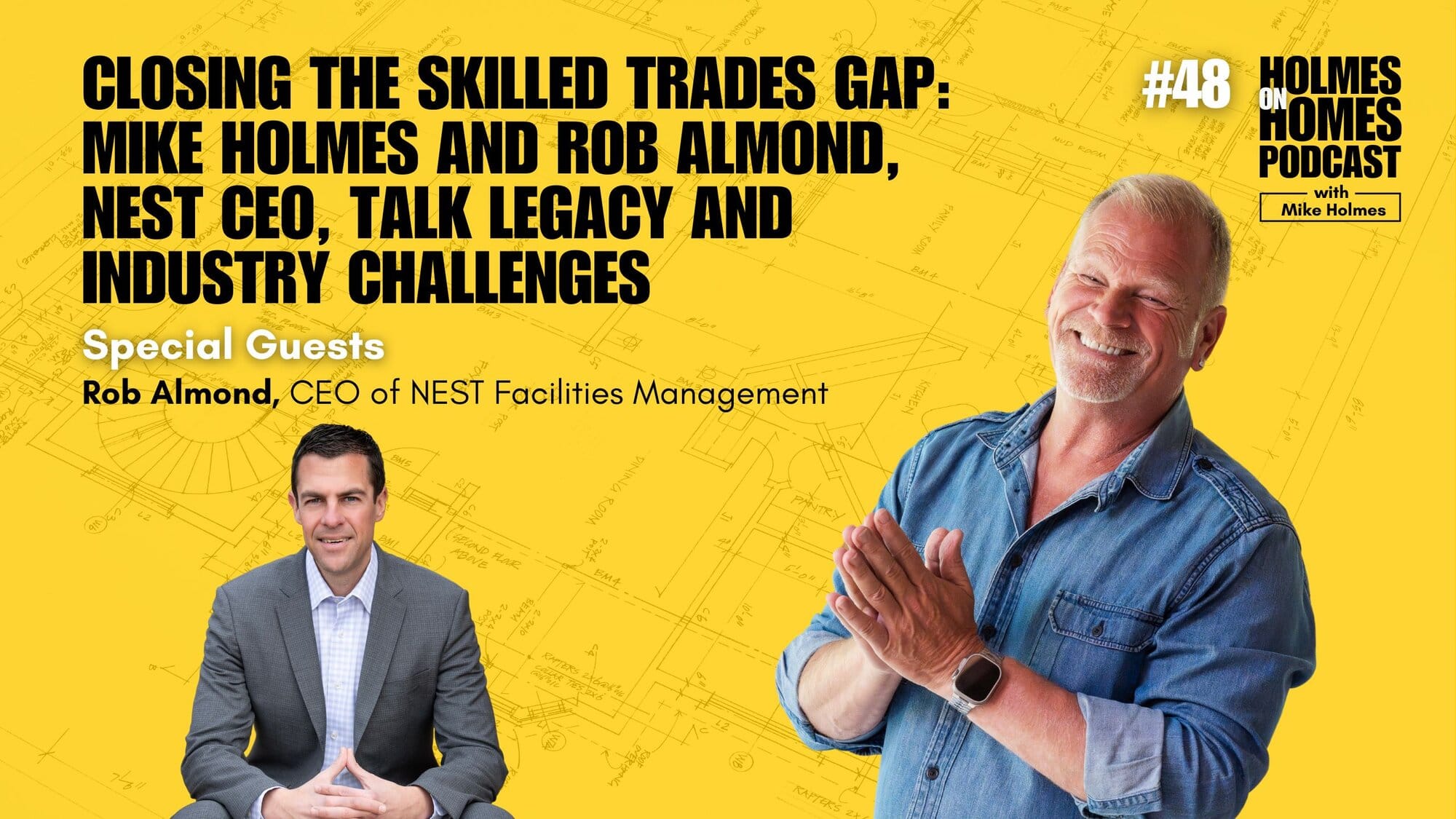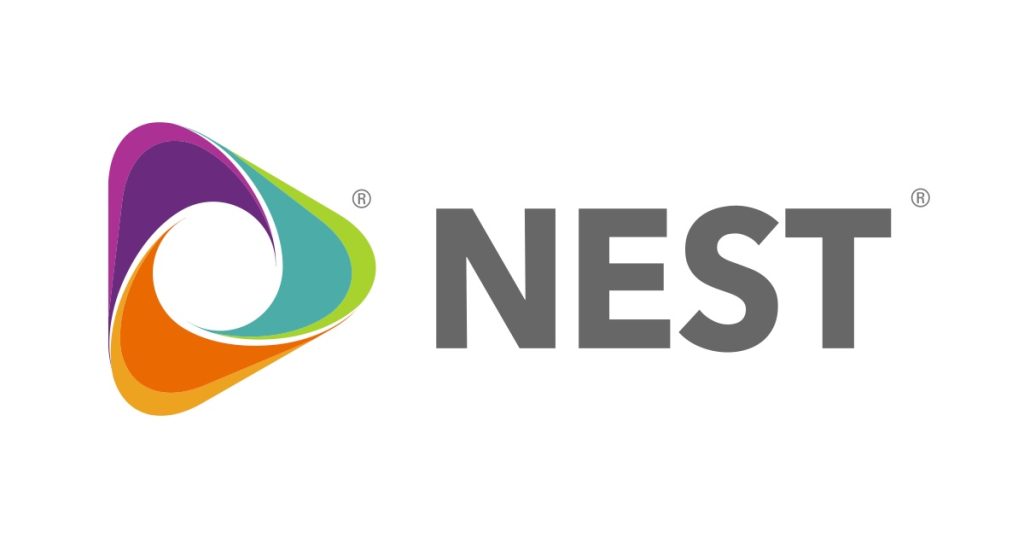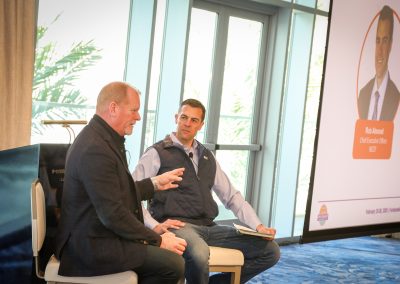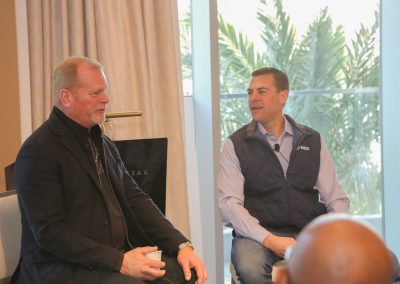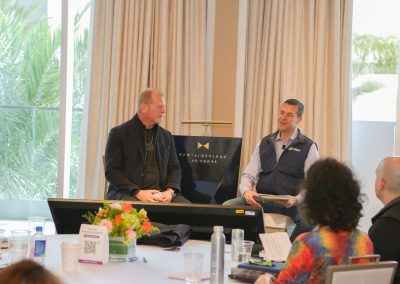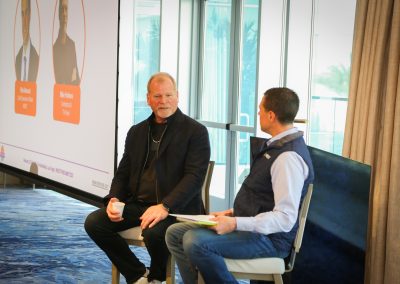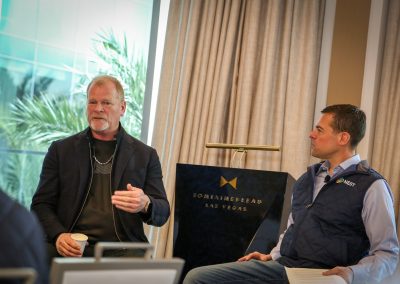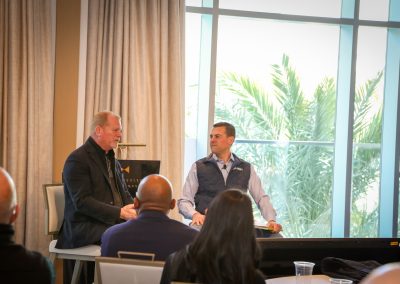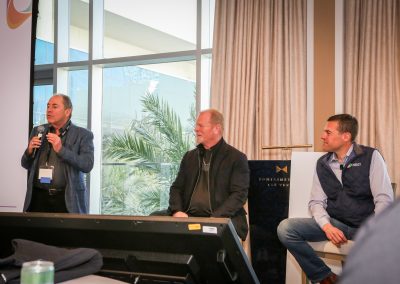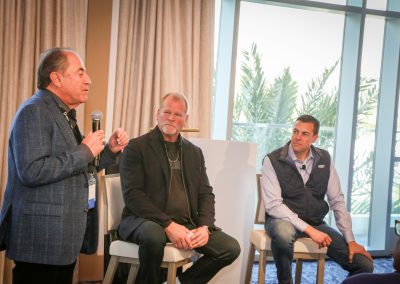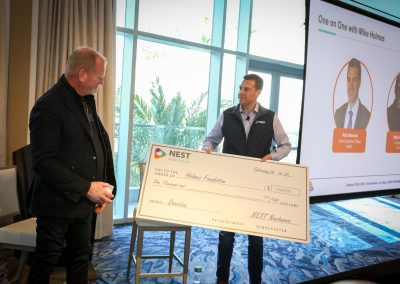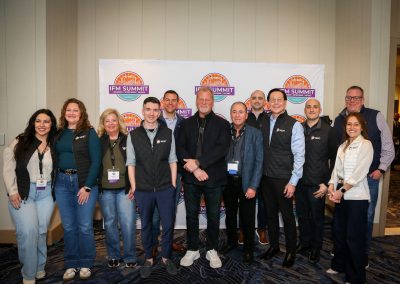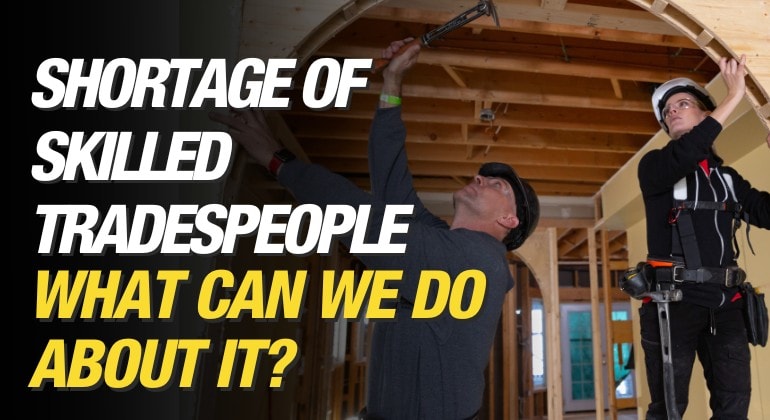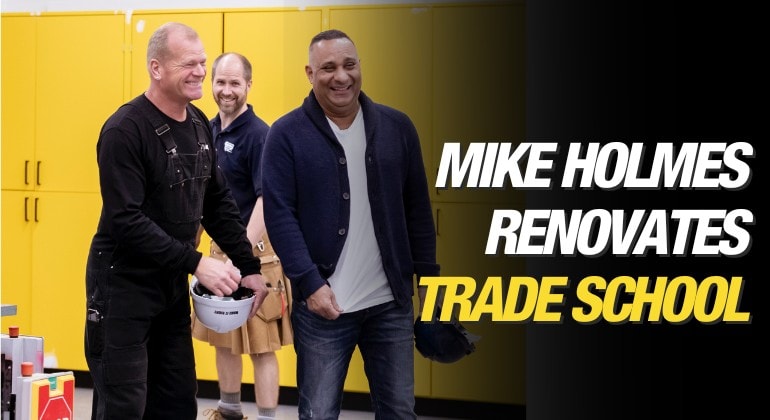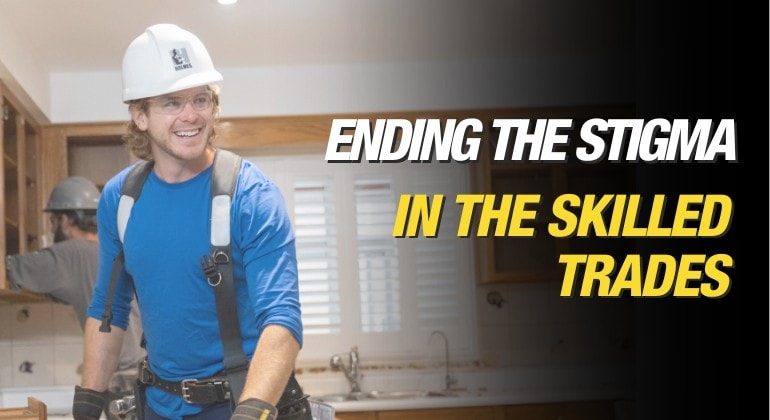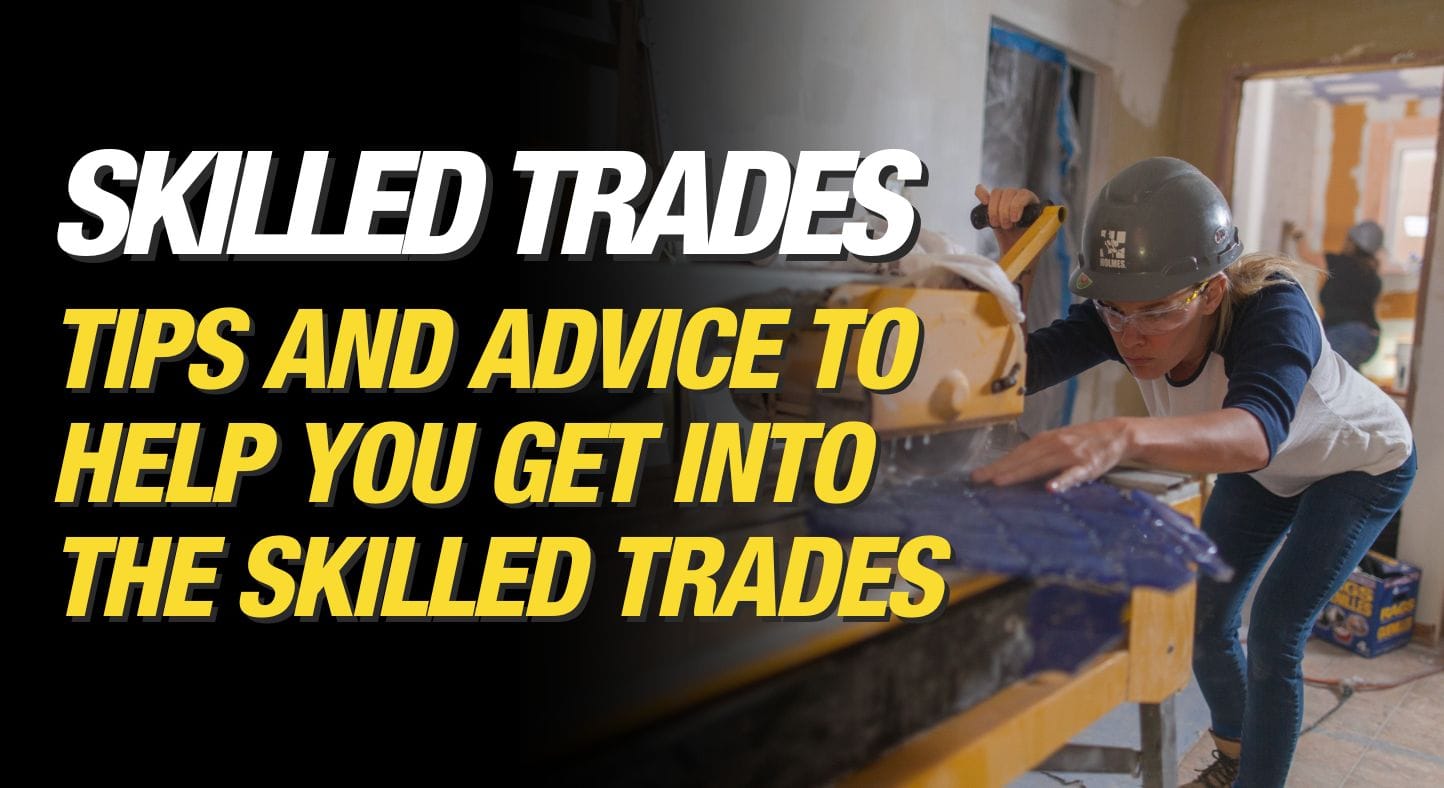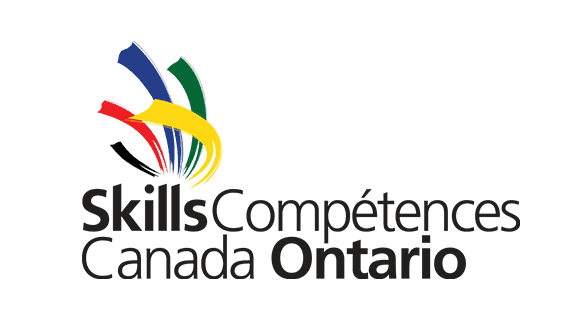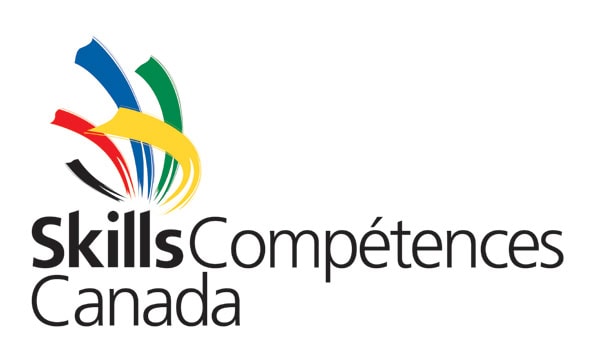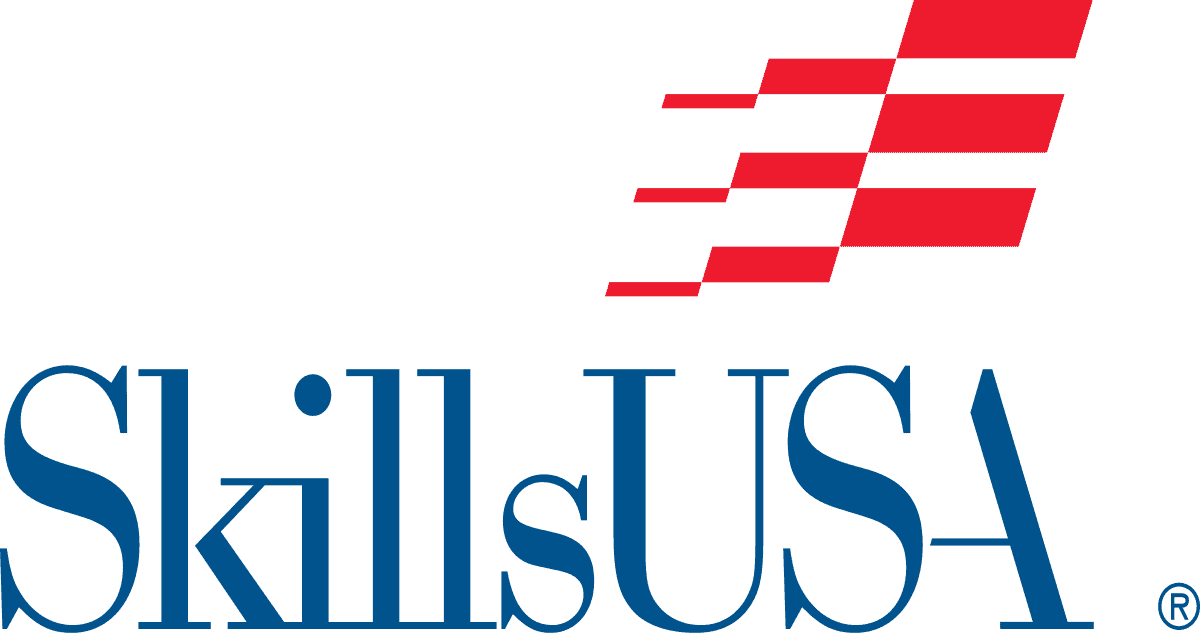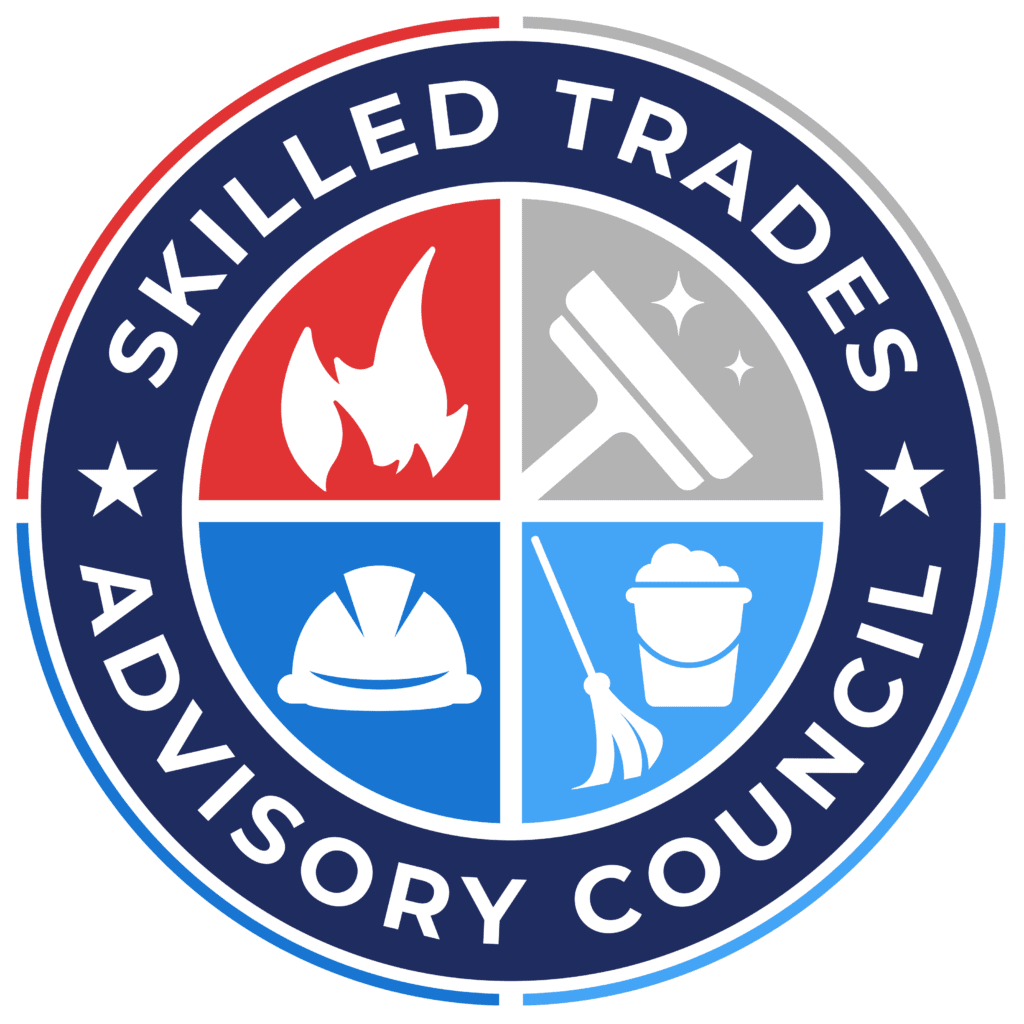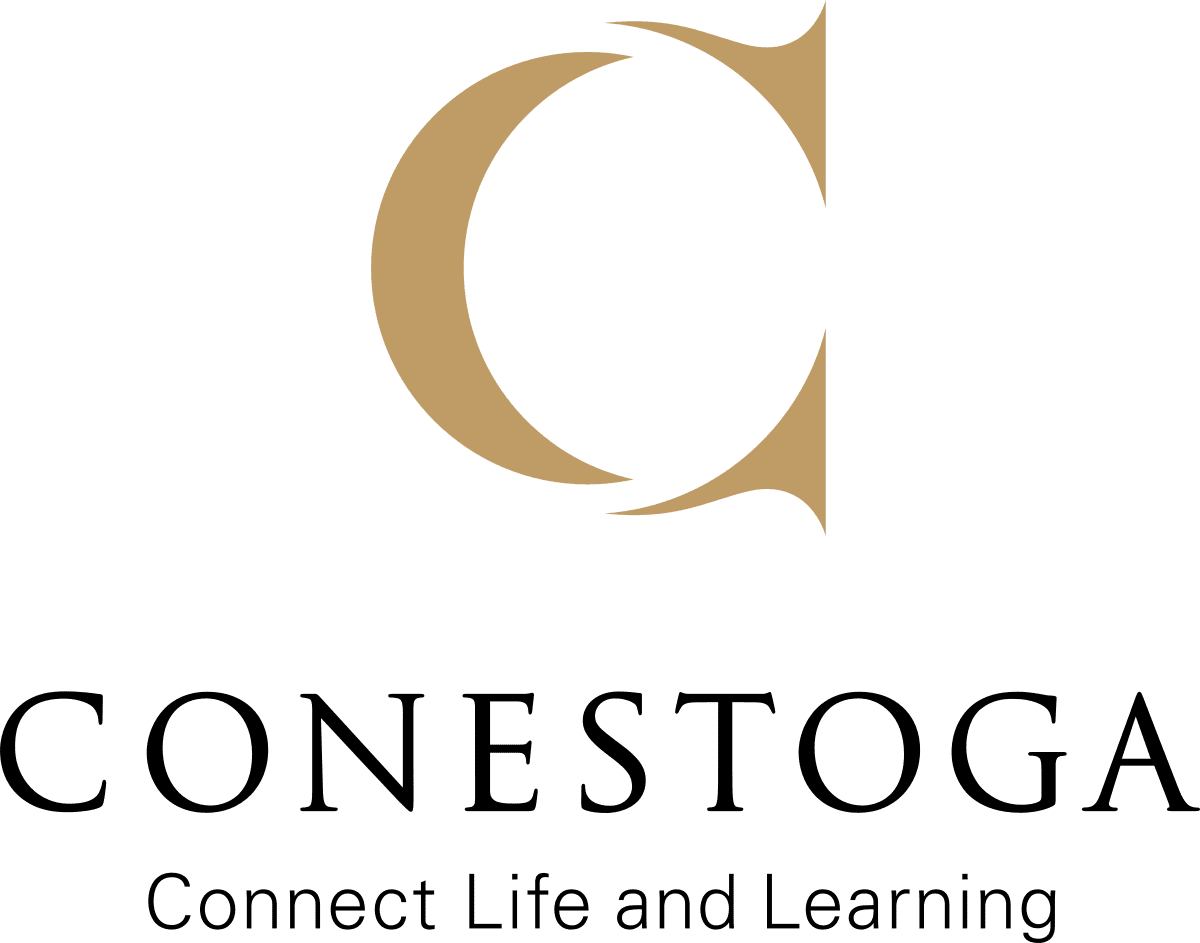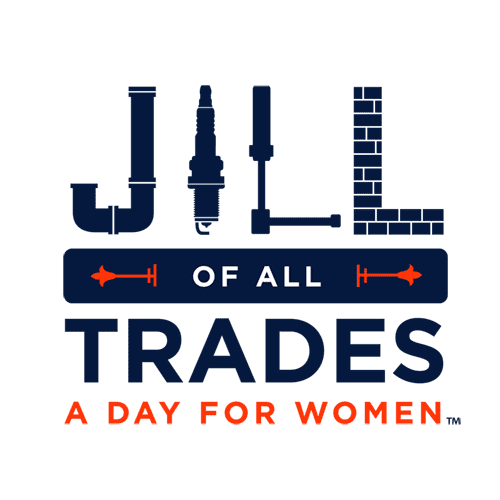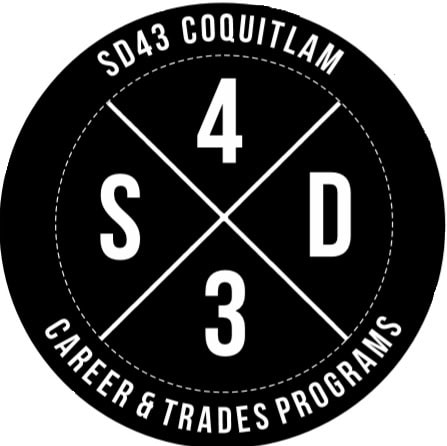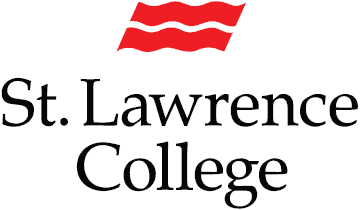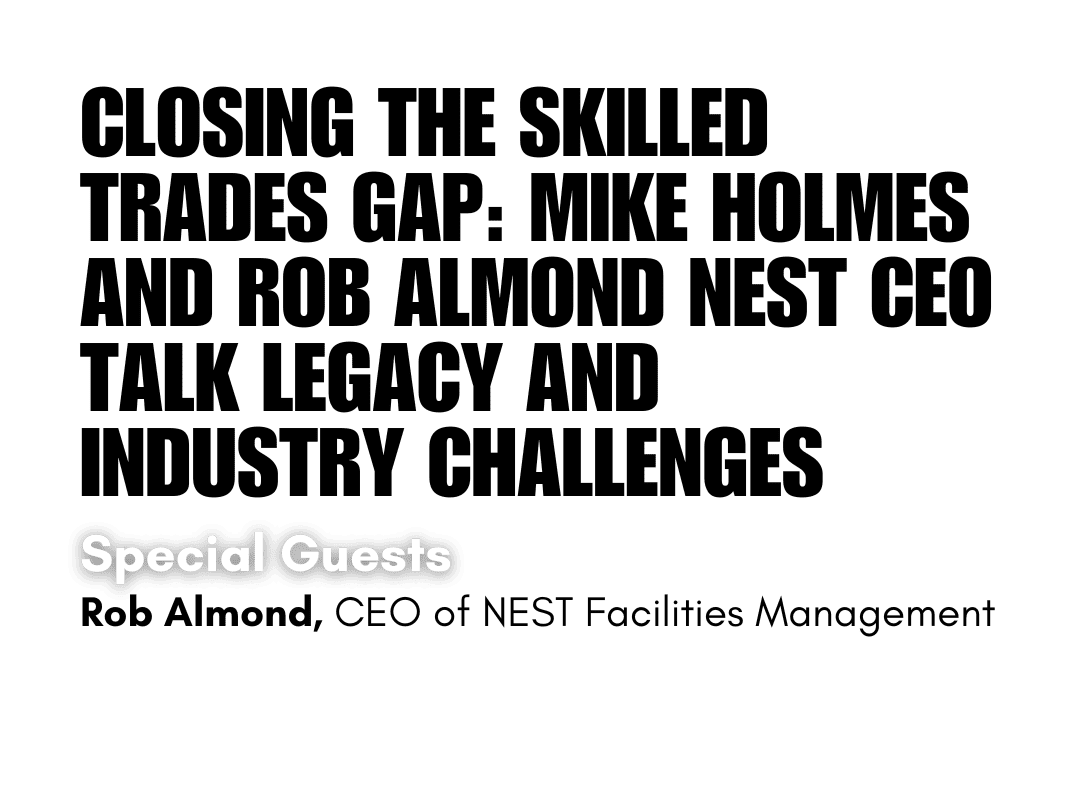
Holmes on Homes Podcast with Mike Holmes: Season 5 – Episode 10
Closing The Skilled Trades Gap: Mike Holmes and Rob Almond, NEST CEO, Talk Legacy and Industry Challenges
EPISODE AIRS JUNE 19
The skilled trades are in a race against time. With an aging workforce and fewer young people entering the field, the industry is facing a critical shortage that could affect everything from home construction to infrastructure development. But what can be done to ensure the future of skilled trades is secure? How can we help close the skilled trades gap?
On this episode of the Holmes on Homes Podcast, Mike Holmes sits down with Rob Almond, CEO of NEST Facilities Management. They discuss the current state of the trades and what steps are being taken to overcome the industry’s biggest challenges. From Mike’s personal journey in the trades to his legacy of “making it right,” they explore what it takes to build a sustainable future for the skilled workforce.
Mike and Rob dive into the importance of mentorship and industry collaboration. They also talk about how programs like the Holmes Foundation and the Skilled Trades Advisory Council (STAC) are helping bridge the skills gap. They also discuss the pressing issue of ensuring quality, trust, and safety in an industry that’s essential but often overlooked.
Are you concerned about the skilled trades shortage? Wondering what can be done to fix it? Tune in for unfiltered advice and insights from the experts.
SPECIAL GUESTS
NEST Integrated Facilities Management delivers innovative, tech-driven solutions to streamline multi-site facility operations across North America. By combining centralized management, 24/7 support, and a trusted vendor network, NEST helps businesses reduce costs, boost efficiency, and ensure consistent service delivery. Their approach is redefining how companies manage their facilities at scale. Beyond their core services, NEST actively champions the skilled trades through initiatives like the Skilled Trades Advisory Council (STAC) and the Skilled Trades All-Star Program, developed in partnership with the Philadelphia Phillies. These programs aim to address labor shortages and inspire the next generation by promoting trades as honorable and rewarding careers.
Learn more about NEST Integrated Facilities Management here.
Ask Mike Holmes
Mike and his expert industry guests answer some of the most commonly asked questions.
1. What is causing the skilled trades shortage in Canada?
Canada is experiencing a skilled trades shortage due to an aging workforce and fewer young individuals entering these professions. Reports indicate that over 245,100 construction workers are expected to retire by 2032, leading to a significant labor gap in the industry.
2. How is the skilled trades shortage impacting the construction industry?
The shortage of skilled tradespeople is causing delays in construction projects and increasing costs. With a significant portion of the workforce nearing retirement, there aren’t enough trained professionals to meet the current demand, affecting infrastructure development nationwide.
3. What initiatives are addressing the skilled trades shortage in Canada?
Organizations like the Holmes Foundation and the Skilled Trades Advisory Council (STAC) are actively working to bridge the skills gap by promoting careers in the trades, offering mentorship programs, and supporting training and education for aspiring tradespeople.
4. How can young people be encouraged to pursue careers in the skilled trades?
Encouraging youth to enter the skilled trades involves raising awareness about the benefits, such as job security and competitive salaries, and providing accessible training programs. Initiatives like Skilled Trades Ontario offer resources and information to help individuals explore and enter these careers.
5. What role does mentorship play in developing skilled trades professionals?
Mentorship is crucial in the skilled trades, providing hands-on training, guidance, and knowledge transfer from experienced professionals to newcomers, ensuring high standards and continuity in the industry.
6. How can we encourage more young people to enter the trades?
More young people need to see the trades—plumbing, electrical, carpentry—as rewarding careers with job security and great pay. Programs like the Holmes Foundation and the Skilled Trades Advisory Council (STAC) promote education, mentorship, and training to change the outdated mindset that success only comes with a university degree.
7. Does Mike Holmes have a foundation, and how does it support the trades?
The Holmes Foundation provides scholarships and support for students entering the skilled trades. Mike Holmes founded it to help future tradespeople get the training and mentorship they need—because skilled trades aren’t just jobs, they’re essential careers.
8. What is the Skilled Trades Advisory Council (STAC)?
The Skilled Trades Advisory Council (STAC) is a group of national industry leaders from construction, retail, facilities management, and the skilled trades, working together to tackle the labor shortage. STAC’s mission is to create awareness and opportunities for careers in essential fields like electrical, plumbing, HVAC, and construction. By leveraging their expertise and networks, STAC aims to elevate the trades as high-paying, honorable, and vital career paths.
Looking for More Expert Tips and Advice?
Check out Mike’s Advice and Holmes on Homes Podcast Blog.
About the Holmes on Homes Podcast with Mike Holmes
The Holmes on Homes Podcast, hosted by Mike Holmes, seasoned professional contractor and TV host, is your go-to source for expert insights on home improvement, safety, maintenance, skilled trades, and industry innovation. Each episode features expert guests and valuable takeaways, covering everything from choosing the right materials, aging in place, and electrical safety to the future of construction with 3D printing, pondscaping, and even raising healthy pets in a healthy home.
Whether it’s renovating for accessibility, improving indoor air quality, or tackling the skilled trades stigma, Mike and his guests break it all down with real talk, hard truths, and the no-nonsense advice that’s made him a trusted name in home improvement. Because when it comes to building better, it pays to Make It Right.
With over 40 years of experience, Mike provides practical advice and industry best practices, empowering homeowners to make informed decisions. Whether you’re a first-time homeowner, professional contractor, or planning a major renovation, this podcast is your go-to source for everything home-related.
WATCH MORE EPISODES
S5 | EPISODE #1
“Why is There a Shortage of Skilled Trade Workers? How VR Training and Early Education Can Help Solve the Problem” The skilled trades industry is facing a critical shortage, but it’s not because of a saturated market. In fact, according to Stats Canada, between 2016 and 2021, the number of youth (ages 15-24) in the trades dropped by over 12%. So, what’s really going on?
S5 | EPISODE #2
“How Do You Make a Home Wheelchair Accessible? Must-Have Modifications & How to Find the Right Contractor” What are the best wheelchair accessible home modifications? How do you make a home wheelchair accessible on a budget? The best wheelchair accessible home modifications include ramps or vertical lifts for entry, as well as wider door frames and durable flooring, for both comfort and safety.
S5 | EPISODE #3
“What Are the Most Popular Aging-in-Place Remodeling Projects? Top Home Modifications for a Safe, Comfortable Forever Home” As we age, our homes need to evolve with us, and making the right modifications can help ensure your forever home is functional, accessible, and safe for the long term. So what are the best modifications for aging in place?
S5 | EPISODE #4
“Guide to Building Legal Basement Suites in Canada: Key Features, How to Attract Quality Tenants, and Tips for Success” Thinking of turning your basement into an income suite? Building a legal basement suite is a great way to generate extra income. However, it’s important to understand the difference between legal and illegal basement suites, especially when it comes to compliance with local building codes and safety requirements.
